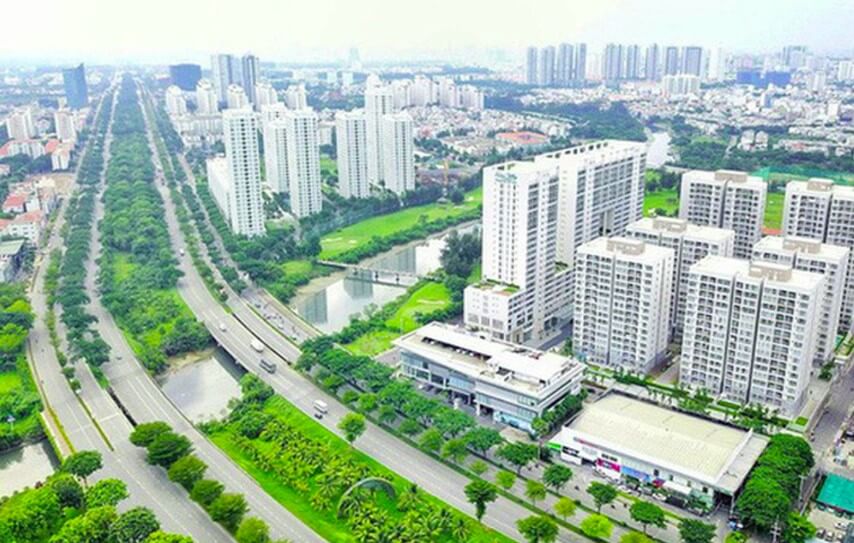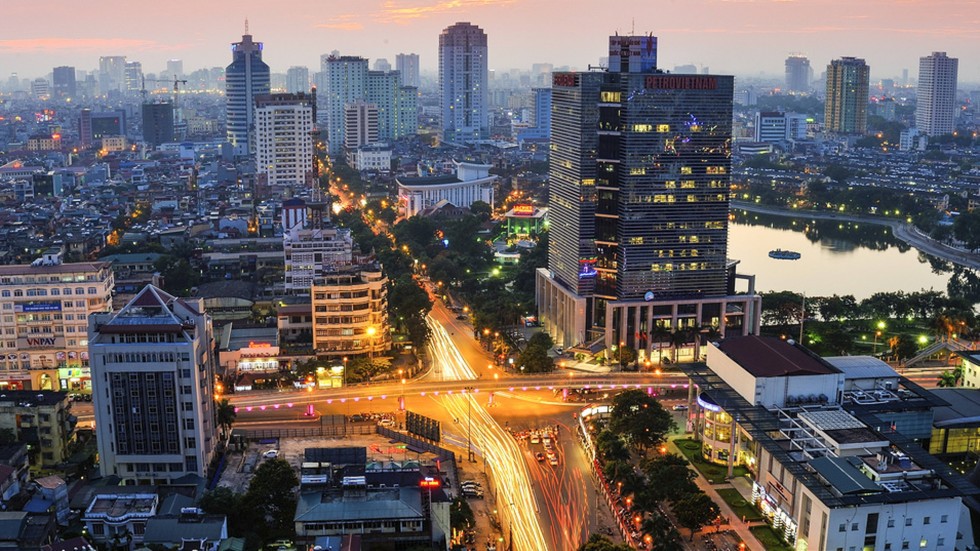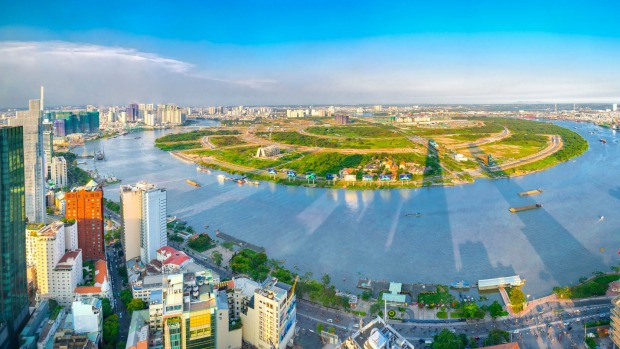Regulations on environmental protection in certain fields in Vietnam
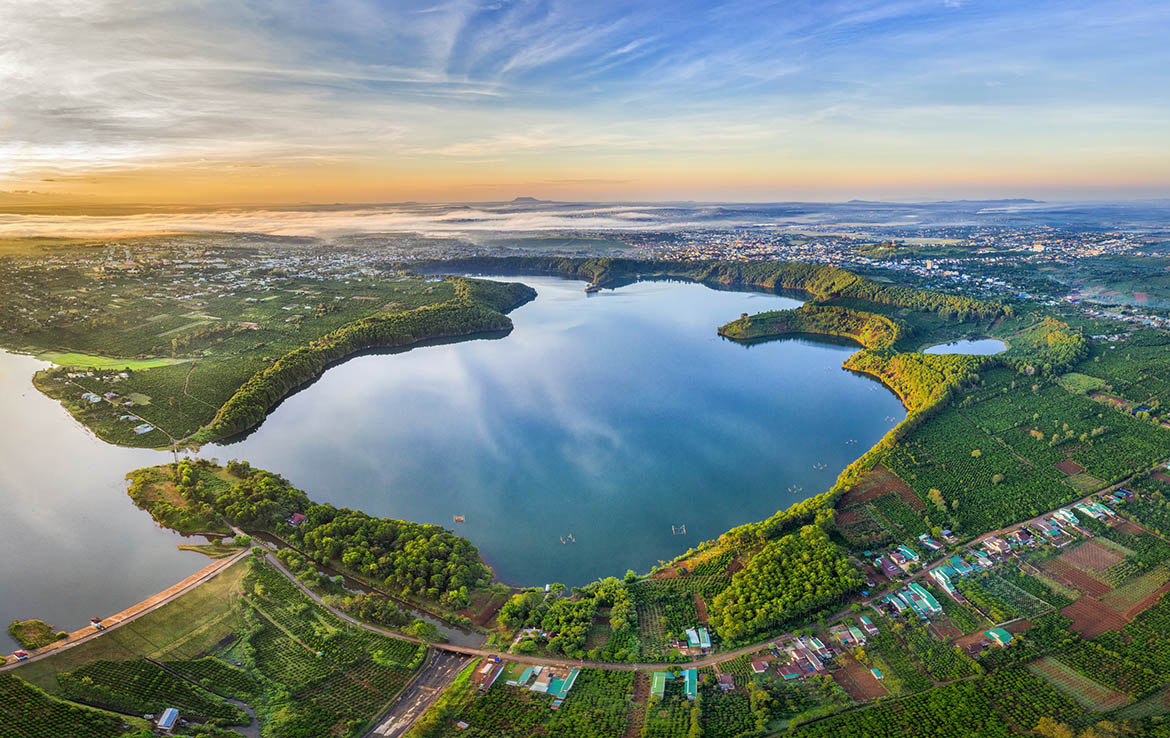
Vietnam law has regulations on environmental protection in certain fields. Let’s find out this issue with Lawyer X through the following situation: “Dear Lawyer1 What are regulations on environmental protection in agricultural production in Vietnam? What are regulations on environmental protection in medical activities and control of effects of environmental pollution on human health in Vietnam? Thanks for answering me!”
Legal grounds
- Vietnam law on environmental protection
Environmental protection in agricultural production
– Every entity that produces, imports, sells and/or uses chemicals, agrochemicals, veterinary drugs and fertilizers must comply with regulations of law on environmental protection regulations and other relevant regulations of law.
– It is required to register, inventory, control, manage information about, assess and manage risks and handle chemicals, agrochemicals and veterinary drugs that are highly toxic, persist, spread and accumulate in the environment resulting in adverse impacts on environment and human health.
– Expired fertilizers, environmental remediation products in livestock production, agrochemicals, veterinary drugs, aquaculture feeds and environmental remediation products in aquaculture must be managed in accordance with relevant regulations of law. Containers of fertilizers, animal feeds, aquaculture feeds, agrochemicals, veterinary drugs, environmental remediation products in aquaculture and products for livestock waste treatment after use, and sludge and feeds accumulated after cleaning of aquaculture ponds must be managed in accordance with waste management regulations. Sludge dredged from channels and hydraulic structures must be collected, reused, recycled and managed as prescribed by law. Dead animals must be collected and dealt with in accordance with regulations on hazardous waste management and preventive medicine.
– Agricultural by-products must be collected to manufacture products and goods, used as raw materials and fuels, used for production of fertilizers and energy or managed as prescribed; by-products of plants must not be burned in the open air to avoid causing environmental pollution.
– The use of livestock waste as organic fertilizers or for plant watering or for other purposes must comply with the Government’s regulations.
– The State shall introduce policies to encourage innovation of models and methods for agricultural production in a sustainable and climate-resilient manner that saves water and restricts the use of inorganic fertilizers, agrochemicals and environmental remediation products in agriculture; develop environmentally-friendly agriculture models.
– The Ministry of Agriculture and Rural Development shall direct and organize management of sludge dredged from channels and hydraulic structures in compliance with environmental protection requirements.
Environmental protection in medical activities and control of effects of environmental pollution on human health
– Hospitals and other health facilities must satisfy environmental protection requirements, including:
+ collecting and treating wastewater in line with environmental protection requirements before discharging it into the environment;
+ classifying solid waste at source; collecting, storing, transporting and treating solid waste in line with environmental protection requirements. Domestic solid waste or normal solid waste that is mixed with infectious biomedical waste must be managed as the infectious biomedical waste;
+ giving priority to non-incineration and environmentally-friendly technologies which must satisfy requirements for environmental protection in management of infectious biomedical waste;
+ encouraging disinfection of infectious biomedical waste to remove pathogens that are potentially infectious before transporting them to central treatment facilities;
+ having plans and equipment for prevention of and response to environmental emergencies caused by biomedical waste;
+ treating exhaust gases in line with environmental protection requirements;
+ building and operating sanitation facilities and waste collection, storage and treatment systems as prescribed.
– Health facilities that use radioactive sources and radiation equipment must comply with regulations of law on atomic energy.
– Pollutants that directly impact human health must be managed as follows:
+ Identify, assess, warn, prevent and control pollutants that are likely to impact human health; issues concerning diseases and human health directly related to pollutants;
+ Control and deal with sources of pollutants that impact human health and issues concerning diseases directly caused by pollutants;
+ Manage, share and publish information about pollutants that directly impact human health.
– The Minister of Natural Resources and Environment shall elaborate the transport and treatment of biomedical waste.
– The Minister of Health shall elaborate the classification, collection, storage and management of biomedical waste within health facilities; determination, assessment, warning, monitoring and discovery of symptoms and causes of diseases and human health issues directly related to directly related to pollutants; identification and announcement of limits of pollutants in human body that are likely to affect human health; management, statistical reporting, sharing and publishing of information on disease issues associated with pollutants; assessment of costs and economic loss caused by diseases, health issues associated with environmental pollution; formulation, provision of instructions on and organization of implementation of measures to monitor and prevent diseases and human health issues related to pollutants; management, sharing, exchange and publishing of information about pollutants affecting human health.
– Provincial People’s Committees shall provide for collection, transport and treatment of biomedical solid waste in conformity with local conditions; take responsibility for managing pollutants in connection with issues concerning diseases and human health within their provinces.
Environmental protection during burial and cremation
– Every burial and cremation site must conform to the planning, be located and maintain distance in accordance with requirements concerning environmental hygiene and landscape of the residential area and not pollute water sources and the surroundings.
The Government shall provide for environmental protection during burial and cremation in conformity with customs, practices, folk beliefs and religions.
– Corpses and bones shall be mummified, transported, and buried in accordance with environmental hygiene requirements.
– Provider of burial and cremation services must comply with regulations of law on environmental protection and prevention and control of infectious diseases.
– The State recommends that cremation and burial be carried out in cemeteries according to planning and unsound customs that cause environmental pollution be eliminated.
– The Minister of Health shall provide for the burial and cremation of people who die of dangerous epidemics.
Environmental protection in construction
– Construction planning must comply with requirements for environmental protection and climate change adaptation.
– Planning for urban areas and high density residential areas shall be formulated in a manner that develops eco cities, saves energy, uses renewable energy and ensures the ratio of green space, water surface and landscape as prescribed by law.
– The State shall encourage the reuse of waste generated from construction and use of non-baked and environmentally-friendly materials in construction.
– When issuing construction permits and appraising construction designs of investment projects in accordance with regulations of law on construction, it is required to ensure that works, work items and equipment for waste treatment and works for environmental emergency prevention and response are conformable with regulations of law on environmental protection.
– The construction, renovation, repair and dismantling of construction works must comply with the following environmental protection requirements:
+ There must be measures to avoid generating dust, heat, noise, vibration and light in excess of the permissible limits according to technical regulations on environment;
+ During construction, materials and waste must be transported using appropriate vehicles that ensure no leakage or environmental pollution;
+ Wastewater must be collected and treated in line with environmental protection requirements;
+ Usable solid waste and scrap shall be recycled and reused as prescribed; soil, rocks and solid waste generated from construction shall be reused as production materials and for leveling as prescribed;
+ Soil and sewage sludge generated from excavation, dredging of topsoil and foundation excavation are used to fortify soil for planting trees or suitable soil areas;
+ Sewage sludge generated from septic tanks and cesspools must be managed in accordance with regulations on management of normal industrial solid waste;
+ Solid waste and other types of waste must be collected, stored and transported to treatment facilities in accordance with waste management regulations.
– Waste generated from renovation and dismantling of construction works of households and individuals in urban areas must be collected and transferred to facilities licensed for treatment thereof in accordance with regulations of provincial People’s Committees, except for the cases specified in Points d and dd Clause 5 of this Article.
– Waste generated from renovation and dismantling of construction works of households and individuals in rural areas that do not have waste collection and treatment systems must be reused or dumped in accordance with regulations of provincial People’s Committees; must not be dumped on roads, into rivers, streams, channels and other sources of surface water affecting landscape and environment.
– Provincial People’s Committees shall provide for collection, transport and treatment of construction solid waste and planning for sites for dumping of construction waste; sewage sludge from septic tanks, cesspools and water drainage systems.
– The Minister of Construction shall formulate standards and technical regulations on design requirements for solid waste collection systems in line with the classification of solid waste at source of shopping-residential complexes; officetels; complex of mixed-use high-rise buildings.
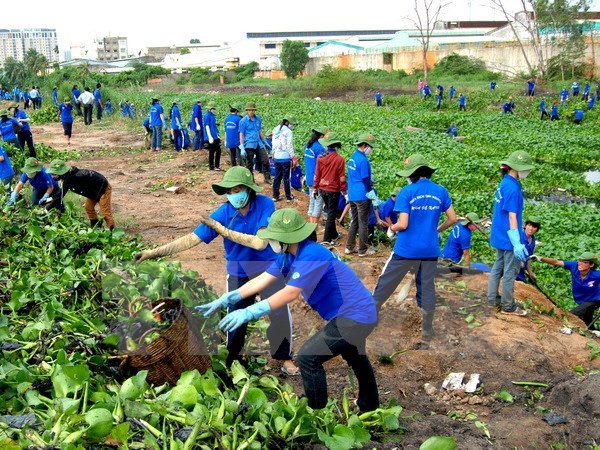
Environmental protection in transport
– Transport vehicles must be tested and certified conformable with technical regulations on environment by registration authorities in accordance with regulations of law and international treaties to which the Socialist Republic of Vietnam is a signatory.
– Vehicles used for transporting raw materials, materials and waste must be covered while they are using public roads in order to avoid leakage and pollution.
– Entities involved in transport of dangerous goods must have necessary qualifications in environmental protection as prescribed by law.
– The goods and materials at risk of pollution and environmental emergencies must be transported using specialized equipment and vehicles to ensure no leakage or discharge.
– Upon construction of traffic works, measures should be in place to minimize and reduce impacts on topography, landscape, geology and natural heritage sites.
– Provincial People’s Committees shall specify areas and sites for discharge and dumping of materials dredged from the inland waterway and sea transport system; introduce measures for traffic diversion and control of environmental pollution in order to limit air pollution in special class and class I cities.
– The Government shall promulgate policies to provide incentives for, assistance in and encourage the use of public transport, and renewable energy, fuel-efficient, low emission or zero emission vehicles; a roadmap for converting or removing vehicles using fossil fuels and causing environmental pollution.
– The Minister of Transport shall promulgate national technical regulations on technical and environmental safety inspection of vehicles in accordance with regulations of law on transport and quality of products and goods and other relevant regulations of law; provide guidance on and organize the dredging within seaport waters and inland waterway waters as prescribed.
Environmental protection during culture, sport and tourism activities
– Every entity that manages and operates sites/monuments, tourism areas, tourist attractions, tourist accommodation establishments and places for sports practice, performance and competition and every festival organizer shall comply with the regulations set out in Clause 2 Article 59 of this Law.
– Visitors to sites/monuments, tourism areas, tourist attractions, tourist accommodation establishments, places for sports practice, performance and competition and festivals must:
+ comply with the regulations on hygiene maintenance and environmental protection;
+ dispose of waste in designated places; limit the generation of plastic waste;
+ maintain public hygiene;
+ not infringe upon landscapes and animals.
– The Minister of Culture, Sports and Tourism shall:
+ organize the implementation of regulations on environmental protection of tourist accommodation establishments and tourism services; development of tourist accommodation establishments and environmentally-friendly tourism services;
+ organize the implementation of regulations on encouraging the reduction, reuse and recycling of plastic waste in culture, sport and tourism activities.
Environmental protection during exploration, mining and processing of minerals and oil and gas activities
– Every entity that explores, mines and processes minerals must formulate an environmental emergency prevention and response scheme and satisfy the following requirements for environmental protection, improvement and remediation:
+ Collect and treat wastewater as prescribed;
+ Collect and treat solid waste in accordance with solid waste management regulations;
+ Take measures to prevent and restrict the discharge of dusts and exhaust gases and other adverse impacts on the surroundings;
+ Formulate an environment improvement and remediation scheme and improve and remediate environment during mineral mining in accordance with regulations of this Law and regulations of law on minerals;
+ Pay deposits on environmental protection as prescribed in Article 137 of this Law.
– Projects and facilities required to formulate an environmental improvement and remediation scheme include:
+ Mineral mining projects;
+ Mineral mining facilities operating before the effective date of this Law but failing to formulate an environmental improvement and remediation scheme or changing the environmental improvement and remediation contents specified in the approved plan;
+ Mineral mining facilities operating before the effective date of this Law and having their environmental improvement and remediation scheme approved but failing to cover the cost of implementation thereof as prescribed by law.
– Contents of an environmental protection and remediation scheme include:
+ Solutions for environmental improvement and remediation; analyzing and assessing the solutions and selecting the best solutions;
+ List and quantity of items serving environmental improvement and remediation for the selected solution;
+ The implementation plan divided into multiple years and stages of environmental improvement and remediation; environmental monitoring program during the environmental improvement and remediation; plan to inspect and confirm completion of the scheme;
+ An estimate of costs of environmental improvement and remediation for each item serving environmental improvement and remediation; deposits paid according to a roadmap.
– Toxic minerals must be stored and transported using specialized equipment and vehicles and covered to ensure no leakage or discharge.
– The use of machinery and equipment adversely impacting the environment and toxic chemicals in mineral exploration, mining and processing and mine closure must be subject to EIA and specified in the application for environmental license.
– The exploration, mining, transport and processing of other minerals containing radioactive substances, toxic substances and explosives must comply with regulations of this Law, regulations of law on chemical safety and atomic energy and other relevant regulations of law.
– The Government shall elaborate the formulation and appraisal of schemes for environmental improvement and remediation in mineral mining; provide for specific requirements for environmental protection during trial operation, waste management and environmental monitoring in the case of oil and gas exploration, extraction and transport and relevant services at sea.
– The Minister of Natural Resources and Environment shall provide forms and technical guidance to implement this Article.
Environmental protection by research institutes, training institutes and laboratories
– Research institutes, training institutes and laboratories must:
+ Collect and treat wastewater and exhaust gases in accordance with environmental protection requirements;
+ Classify solid waste at sources; collect and manage solid waste in accordance with regulations of law on waste management;
+ Process and destroy test specimens and chemicals in accordance with technical regulations on environment;
+ Make plans and provide equipment for prevention of and response to environmental emergencies;
+ Satisfy other requirements in accordance with relevant regulations of law.
– Every research institute, training institute and laboratory that uses radioactive substances, radiation equipment,
Environmental protection during management of persistent pollutants and raw materials, fuels, materials, products, goods and equipment containing persistent pollutants
– Requirements for environmental protection during management of persistent pollutants and raw materials, fuels, materials, products, goods and equipment containing persistent pollutants are as follows:
+ It is not permitted to produce, export, import and use persistent organic pollutants and raw materials, fuels, materials, products, goods and equipment containing persistent organic pollutants in the Annex A of the Stockholm Convention whose content exceeds the maximum permissible limits as prescribed by law, except for the persistent organic pollutants registered for the specific exemptions under the Stockholm Convention;
+ It is required to control sources of, publish information about, label, assess the conformity of and check persistent pollutants and raw materials, fuels, materials, products, goods and equipment containing persistent pollutants as prescribed by law;
+ Persistent organic pollutants and raw materials, fuels, materials, products, goods and equipment containing persistent organic pollutants whose content exceeds the maximum permissible limits as prescribed by law are permitted to be recycled and disposed of provided that the recycling and disposal do not result in the recall thereof for reuse purpose, and satisfy environmental protection requirements;
+ Persistent pollutants and raw materials, fuels, materials, products, goods and equipment containing persistent pollutants whose content exceeds the maximum permissible limits must be stored, recalled, managed and handed in compliance with environmental protection requirements, except for the case where they have been recycled or disposed of as prescribed in Point c of this Clause;
+ Businesses shall include types and quantity of persistent pollutants and raw materials, fuels, materials, products, goods and equipment containing persistent pollutants discharged into water, air and soil in a list and send it to a competent authority for the purposes of information management, assessment and management of environmental risks as prescribed by law;
+ Areas in which persistent pollutants remain or which are contaminated by persistent pollutants must be assessed, determined and warned with respect to the risks they may pose, and safe management, environmental improvement and remediation measures must be taken.
– Responsibility for environmental protection during management of persistent pollutants and raw materials, fuels, materials, products, goods and equipment containing persistent pollutants is as follows:
+ Entities shall satisfy the requirements set forth in Clause 1 of this Article;
+ The Ministry of Natural Resources and Environment shall preside over and cooperate with other Ministries and ministerial agencies concerned in providing guidance on and organizing the compliance with the requirements in Clause 1 of this Article; incorporate information relating to monitoring of persistent pollutants into the national state of the environment report under the Stockholm Convention, other international treaties to which the Socialist Republic of Vietnam is a signatory and regulations of law;
+ Ministries and ministerial agencies concerned and provincial People’s Committees shall organize the compliance with requirements for environmental protection during management of persistent pollutants and raw materials, fuels, materials, products, goods and equipment containing persistent pollutants in the sectors and local authorities under their management according to the Stockholm Convention, other international treaties to which the Socialist Republic of Vietnam is a signatory and regulations of law.
+ The Government shall elaborate the environmental protection during management of persistent pollutants and raw materials, fuels, materials, products, goods and equipment containing persistent pollutants according to the Stockholm Convention and other international treaties to which the Socialist Republic of Vietnam is a signatory.
Environmental protection during import, temporary import, re-export and transit of goods
– Entities shall not import:
+ used machinery, equipment and vehicles for dismantling purposes, except for the case in Clause 2 of this Article;
+ machinery, equipment, vehicles, goods, raw materials and scrap contaminated by radioactive substances, germs or other toxins, which have not yet been cleaned or cannot be cleaned.
– The import and demolition of used ships must comply with national regulations on environment. The Government shall provide for entities eligible and conditions for import and demolition of used ships.
– The import, temporary import, re-export and transit of goods at risk of environmental pollution shall comply with regulations of law on foreign trade management.
Environmental protection during import of scrap from foreign countries
– Scrap imported into Vietnam must comply with technical regulations on environment and be included in the list of scrap permitted for import from foreign countries as production materials promulgated by the Prime Minister.
– Entities are only permitted to import scrap from foreign countries as production materials for their manufacturing establishments and must:
+ have manufacturing establishments with technologies and equipment serving scrap recycling and reuse, warehouses and sites exclusively reserved for aggregation of scrap which satisfy environmental protection requirements; prepare a scheme to deal with impurities in the imported scrap;
+ have environmental licenses;
+ pay deposits on environmental protection as prescribed in Article 137 of this Law before scrap is unloaded in the case where it is imported through sea border checkpoint or before scrap is imported into Vietnam in other cases;
+ have a written commitment to re-export or treatment of scrap if the scrap is imported without satisfying environmental protection requirements.
Please see more:
- Instructions for exclusive registration of company logos in Vietnam
- Service of changing the legal representative of Vietnamese enterprises
Services of Lawyer X
Prestigious professional services: Firstly, the team of consultants and consultants for many years in the field of civil status, and customer support.
On-time: Certainly, with the motto “Get your lawyer right at your fingertips”, we ensure the service always performs on time. The rights and interests of customers always come first.
Cost: Besides, Lawyer X’s service costs are highly competitive; depending on the nature of the particular case. So, we want our guests to have the best possible service experience. Therefore, costs which guaranteed to be the most suitable and economical for customers.
Confidentiality of client information: Finally, all personal information of clients Lawyer X will be 100% confidential.
If you need any further information, please contact LSX Law firm: at +84846175333 or Email: [email protected]
Frequently asked questions
Every entity that produces, imports, sells and/or uses chemicals, agrochemicals, veterinary drugs and fertilizers must comply with regulations of law on environmental protection regulations and other relevant regulations of law.
It is required to register, inventory, control, manage information about, assess and manage risks and handle chemicals, agrochemicals and veterinary drugs that are highly toxic, persist, spread and accumulate in the environment resulting in adverse impacts on environment and human health.
Yes! Hospitals and other health facilities must satisfy environmental protection requirements.
Conclusion: So the above is Regulations on environmental protection in certain fields in Vietnam. Hopefully with this article can help you in life, please always follow and read our good articles on the website: lsxlawfirm.com


